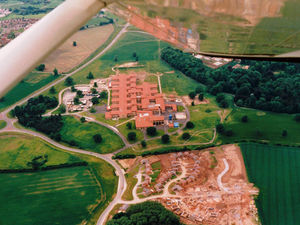Star comment: Rail services need examination
The history of Britain's railways over the past 60 years could easily been viewed as one of stunted evolution.
And tragically, few of the myriad of developments that have taken place have resulted in any lasting improvements for passengers.
The Beeching cuts, initiated in the 1960s, saw routes disappear and thousands of stations close down, in a move that is now widely viewed as a monumental error.
Then passenger services were split into a multitude of franchises when the railways were privatised in the mid-1990s, resulting in spiralling prices and fragmented – and often poor quality – services.
It means that as far as our rail planners are concerned, the best solution to a current problem has often been to look backwards, instead of ahead.
Disgracefully, the people at the bottom of the list of considerations when it comes to "rail improvements" are often the ones that keep the whole system running, namely the passengers.
Now, for the first time in a quarter of a century, a plan appears to be in place to turn the experience of train travel into a positive one.
A new national body – Great British Railways (GBR) – will control the network from 2023 in a move the Government is keen to point out does not represent the renationalisation of rail.
It must be hoped that GBR will take on board the views of local travel planners when it gets to work.
Here in the Midlands, passengers have suffered from years of patchy, unreliable services. Cancelled trains and overcrowding have blighted the system.
If Ministers are serious about getting more people onto trains post-Covid, then things need to improve fast.
Transport body Midlands Connect has a plan, involving increased services, faster trains and the long-overdue electrification of the line from Shrewsbury through the Black Country.
New stations are also under consideration, as is ensuring the whole region reaps the benefits of the controversial HS2 line.
At the very least, these plans deserve close examination.
Some of the proposals will not come cheap, and indeed, electrification is likely to cause severe disruption for the duration of any works.
However, the alternative of returning to how things were before is simply not an option.





